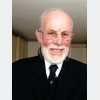| Profile | Posted by | Options | Post Date |

|
Sharron
|
Report
|
14 Jun 2008 14:04 |
|
This is very deep and not really in my sphere of knowledge but I can see some historical explanation of ghosts.They certainly served a purpose.
I grew up on stories of haunted places in the village,we all knew where to not go because of ghosts.So had our parents and a number of previous generations.
Having looked quite deeply into the history of the village it seems that every one of the haunted places I knew of,bar one,is on a route from the sea and this village was particularly well placed for smuggling,not only the later imports but the mediaeval wool exports too.The exception was the cavalier who was seen by the landlord of the pub that strangely enough had people coming in hoping to catch a glimpse.He served the purpose of attracting customers,good marketing eh?
If you are doing something illicit on a road at night,it is not a bad idea to put a bit of fear into the populace regarding that road.
There are a few natural phenomena that can help with this fear too.I have experienced one quite recently.Sitting here late at night finishing something on the computer I heard what sounded like a whole string of horses going by,with nothing to see.It was a boar hedgehog looking for a woman! No doubt a lot of headless horsemen were hedgehogs.
|

|
Joanna
|
Report
|
14 Jun 2008 00:50 |
|
Len, something else really interesting to ponder on. I am really enjoying your thoughts.
I think 'mindsight' is exactly what my Mum had. I like that word.
Throughout her life she saw and heard things that other people did not.
We always said she was like a radio receiver - she could receive programmes we couldn't because she was tuned into another frequency.
I think we all just need to learn to retune ourselves.
Jo
|

|
Bad_Wolf
|
Report
|
14 Jun 2008 00:28 |
|
Why do many so emphatically reject the possibility of extra-sensory perception?
It seems curious that we are prepared to believe much of the incredible world that we live in, and will accept a person's word, without proof or evidence, yet demand proof when someone reports a paranormal phenomenon. We all accept the existence of the duck-billed platypus, though I doubt many who read this knows anyone who has seen one, let alone seen one themselves, yet we question a close friend who reports seeing a ghost.
Could it be that - deep, deep down, - we already know the answer, and it terrifies us?
|

|
Len of the Chilterns
|
Report
|
13 Jun 2008 22:54 |
|
There is a continuing debate which highlights how little is known about the closely related and fundamental scientific question of human consciousness. These complex questions are likely to continue to baffle scientist for many more years, until the breakthrough comes - as it undoubtedly will.
"Perception": Lovely word. It means to become aware through the senses of which most people assume we have but 5 ; sight, smell, hearing, taste and touch Actually, there are several more. A better one is "extra-sensory" which, as a pre-fix, opens up a whole new ball-game but really just alludes to becoming aware by means other than the 5 aforementioned.
This sensory apparatus is really an extension of the brain. But recently, Swedish scientists have discovered that the brain, or central nervous system (which is an extension of the brain) can detect electromagnetic fields independently of the famous five. About 20% of the population can become aware of the electromagnetic radiation from power cables. The findings have been checked and verified in the UK and elsewhere.
Consciousness has yet to be defined by science. Memory, another mysterious sense, still to be pinned down and defined, starts well before birth- at least by 12 weeks after conception. There is evidence that memory can be transmitted at cellualr level.
What cannot be emphasized enough is that what we perceive of the world, not to mention the universe, is just a tiny range of what there is. Our eyes are sensitive to just a very narrow band of a huge spectrum of radiation that includes radio waves, microwaves, x-rays, gamma rays, infra red and ultra violet light and beyond and all manner of electro-magnetic radiation. Our ears pick up but a fraction of the sound that exists and we come a very poor second, in this respect (not to mention smell), to our domestic pets. We are oblivious of things less than about a millimeter across, but tend to believe that what our limited senses do not perceive cannot possibly exist. Most people had difficulty in coming to terms with, or even believing in, bacteria until the fairly recent invention of the microscope. Even today, with some people, seeing is believing.
Many physical processes make no impression on our senses but these days, science is becoming (and I stress the word "becoming") to make more and more of the strange world out there accessible.
Perception of what is around and inside us, by means other than sight, hearing, smell, touch and taste (the so-called 5 senses) is known as "mindsight". The mind "sees" something that is not registered by the normal 5 senses although the brain may then delude us into thinking it is our eyes, ears or nose that is picking up the phenomena. It will seem that real to us!
Until recent tests were carried out at the University of British Columbia in Canada, this was just another "not proven" example of the power of the mind. Vision researcher Dan Simons of the University of Illinois, now “suggests the existence of an interesting and previously unknown “attentional mechanism" i.e. mindsight. It was further suggested that people who do not experience this may be screening out what appears to be a gut feeling in favour of what is, to them, more rational. Wonder what a Tudor ancestor would make of today's world? Probably his/her mind would crack as they would not be able to cope with it.
Prof. Currie of The Royal Tyrrell Museum of Paleontology states "that as long as living creatures continue to exist, they will adapt and change - and the sky is the limit, there are no constraints on what they may do". Humans are relative newcomers to the scene and their future remains an enigma, despite recent TV documentaries telling us what is to come in the next 5 million years. What is clear is that what is of value will be developed and that includes our newly acknowledged mindsight. I nearly said "newly discovered" but many of know that is not the right phrase.
Len
|

|
AgLab
|
Report
|
13 Jun 2008 14:10 |
|
I think the simple answer to it all is that if there wasn't anything to it - it wouldn't happen.
When honest, sober(?) people with nothing to gain, apart from getting the proverbial taken, are convinced that they have had some kind of paranormal experience, then we have to listen.
And just as importantly, try to explain why it happens.
Ray
|

|
Onwe
|
Report
|
13 Jun 2008 00:53 |
|
I have two feet well on the ground but know people who read auras (spelt wrong) and have seen ghosts. I know them well enough not to be full of poo, so phychic (spelt wrong again) abilities cannot be ignored.
|

|
Onwe
|
Report
|
13 Jun 2008 00:53 |
|
thats my thought on the subject
|

|
SilverLady
|
Report
|
12 Jun 2008 23:47 |
|
Thank you Len, I have enjoyed reading this thread. Food for thought indeed................
Love and Peace
Marianne.x (Who does believe in Spiritualism)
|

|
Len of the Chilterns
|
Report
|
12 Jun 2008 23:40 |
|
Dr V.P Lommel and his team at Rijnstate Hospital in Holland have researched “Near Death Experience” at hundreds of patients at hospitals across the country. These patients had been resuscitated after being clinically brain-dead and interviewed as soon as they were well enough to be gently questioned. A full report appeared in that august medical journal "The Lancet".
Many of the back-from-the-dead patients reported being “out of the body” and observing, from a “higher place" in the theatre, the medical activities to revive them. This would have been at a time when there had been no electrical activity whatsoever in the brain and they were clinically dead. The team reached conclusions that “pushed at the limit of medical ideas about the range of human consciousness and the mind/brain relationship”. Christopher French, of the Anomalistic Psychology Research Dept. of Goldsmith College. London, observed: “If researchers could prove that clinically dead patients with no electrical activity in their cortex can be aware of what went on round them and form memories, this would suggest that the brain does not generate consciousness”.
Dr Stephan Schmidt and researchers at Freiberg University, one of Germany’s oldest and most respected academic institutions, in June 2004 published a paper in The British Journal of Psychology which was widely reported in the National press. Scientists have found evidence that humans may indeed possess a sixth sense. Hundreds of experiments appear to show that people can tell when they are being watched, even from afar with a hidden observer. They are surprised to find their experiments indicate that humans do have paranormal powers. “There’s a kind of energy field that, as yet, we cannot measure but which can, in various ways, interact between living organisms”. The boffins call it “distant intentionality” (well, they would, wouldn’t they) but from time immemorial we have called it telepathy.
Perhaps we should reconsider the points raised above. It is not about "the mind being a powerful tool" but about consciousness and the brain being two different things. Science seems to be coming round to the idea of consciousness being independent of and existing separately from the body/brain.
The language of scientists is very complex (it has to be) but does no one see the enormous implications of Dr Lommel's work, let alone Prof. Schmidt's and Jahn's. This is getting close to spiritualism. Think about it in your quiet moments.
len
|

|
Bad_Wolf
|
Report
|
12 Jun 2008 14:38 |
|
Good to see you again, Len!
As always, a well constructed argument that will (hopefully) encourage others to think.
My own hypothesis is that there is a yet-to-be-scientifically-accepted branch of nature, a branch of a more ethereal form, where the more difficult-to-pin down events can be placed. This could help to explain the apparently psychic abilities of some pets (such as goldfish that predict earthquakes - an accepted fact, and is one reason the Japanese keep fish); people's "luck"; the occasional apparent telepathic link with others - which could also be why you can sometimes "click" with a complete stranger at a meeting; as well as the sightings of ghosts, and unusual phenomena associated with them.
However, I have to ask: why is it assumed that because a ghost is "visible" to a person, it is actually visible? Could it not be that its energy is in some way merely stimulating the visual centre of the brain? This could explain why ghosts may be seen by some people, but not by others; it could also explain why ghosts are so difficult to photograph.
Maybe what we perceive of as "Life" is merely a form of entrapment, whereby we are constrained to just four dimensions; our "death" is a release to the greater realm, and judgement will be made on how we performed while trapped - a sort of cosmic "Big Brother" (oh, what a dreadful comparison!).
All a bit deep and mystical, really.
Rob
|

|
Eldrick
|
Report
|
12 Jun 2008 10:02 |
|
To be fair, Jahns work was based largely on statistical analysis on many many thousands of experiments and only a miniscule proportion showed any variation. There are also questions in relation to the analysis of the statistics, so it is still very much an inconclusive area.
Statistics are naturally treated with extreme scepticism by many academics. I don't want to spoil this thread, so I will post an example on another - it's not criticism or anything,, just a fun look at how statistics can be manipulated, either consciously or unconciously.
|

|
Jenxx
|
Report
|
12 Jun 2008 09:39 |
|
Good morning Len
Looks interesting read
going out will read it when I come home
Jenxx
|

|
AgLab
|
Report
|
12 Jun 2008 00:35 |
|
Ooooops! I didn't know that GR had a no-no thing on mentioning other sites. It was really just a coincidence that I found this thread and thought I'd put it on. I hope it doesn't upset anybody.
Len, I agree with Jo. You have got a lot of interesting points raised here. Don't be put off by apathy or lack of understanding. Go for it!
|

|
Joanna
|
Report
|
12 Jun 2008 00:19 |
|
Well, you have certainly been doing a lot of reading and thinking, Len!
I need my tame computer experts (sons) to print this page for me so I can read it slowly and sit and think it over.
I have also had a look at Ray's site - something else to keep me busy for quite a while!
Do let us have any other thought-provoking articles you come across.
Jo
|

|
Len of the Chilterns
|
Report
|
11 Jun 2008 23:25 |
|
Thank you Joanna. No, I don't have a website, being what you might call almost computer illiterate.
I read then sit and think.
Every now and then I crystalise my thoughts into a thread which gives me some satisfaction though I have to admit that most of my threads expire through lack of response - one has to assume that they are to few people's liking. Perhaps a tad indigestible?
Thank you too, Ray. Will have a look at the website. I am surprised that GR allowed you to quote it. They never used to and we had to put brackets round the dots to disguise it..
len
|

|
AgLab
|
Report
|
11 Jun 2008 00:10 |
|
I thought that I would have a meander through the postings and came across this thread. Fascinating.
I don't know if it would be of any interest but I've just put together a website dealing with the unexplained. It's still a bit new and needs adding to but people like Len would be welcome to do the odd article or 2.
I feel a bit cheeky trailing it here but what prompted me was Joanna asking about such a site. It does have a forum by the way.
Anyway, in for a penny, the site is www.perception9.com and anyone interested will be more than welcome.
|

|
Joanna
|
Report
|
10 Jun 2008 23:04 |
|
Wow, Len!
All this is almost too much to take in, in one go.
A hell of a lot of what you say fits in with what, after enough years of my life for me to qualify as an 'ope', has begun to make even more sense to me.
Do you have a more in-depth website?
|

|
Len of the Chilterns
|
Report
|
10 Jun 2008 22:35 |
|
Prof, Richard Wiseman PhD of the Psychology Dept. of Hertfordshire University postulates that “with random, unpredictable events such as scratch cards and lotteries, the expectation of consistently being a winner is meaningless; what psychologists call a positive delusion”. But is he such a Wiseman? Luck so often seems to play a part in all aspects of living – living. loving. competitions, gambling – there always seem to be those who are born winners and their counterparts the born losers. Some people seem to have a knack of making businesses work whilst others, equally intelligent, go from one failed venture to another
Wiseman says that his research shows differences in the psychology and behaviour of lucky and unlucky people. “Lucky people have positive expectations and things tend to go their way”. Is this a chicken and egg syndrome? Could he be not quite up to date with scientific findings? Refer to the posting above, the bit about Robert Jahn. and his experiments. Is it not more probable that “lucky” people are that way because of (I quote Jahn again) “….certain aspects of these human/machine interactions are found to yield anomalous effects currently inexplicable on the basis of established physical concepts and statistical theory”. In other words, the mind/consciousness of humans can influence the operation of low-level random operating systems - ERNIE ? . Most of us seem to know someone who always wins the raffle the club.
In case you are not familiar with ERNIE, its the computer which randomly selects the National Lottery winning numbers...... the sort of machine that Jahn exposes as being susceptible to influence of distant human minds
|

|
Len of the Chilterns
|
Report
|
6 Jun 2008 22:57 |
|
It is held in science that a negative hypothesis can never be proved conclusively true; yet Extra-sensory Perception (ESP) is a negative hypothesis since it can be proved true only if all possible alternative assumptions are disproved. Thus the concept of ESP posed both practical and logical difficulties for scientific study - until now.
At Princeton University's Engineering faculty, highly trained scientists from different disciplines are convinced that if they concentrate really hard, their thoughts can alter reality and affect computers. "When people look at a computer with intense intent and concentration, they can produce bizarre, unexpected and inexplicable events". Testing the theory at Princeton's Engineering Anomalies Research (PEAR) laboratories it was published "over tens of millions of trials we have a very strong case that peoples' intentions can have a small but persistent effect on results". Tests were made not only on computers but with coins (heads or tails) and with dice etc.
The Anomalies Research Programme was established in 1979 by Prof. Robert Jahn, Dean of the School of Engineering and Applied Science (formerly a rocket scientist) to pursue rigorous study of the interaction of human consciousness with sensitive physical devices, systems and processes common to contemporary engineering practice. Since that time an interdisciplinary staff of engineers. physicists, psychologists and humanists have been conducting a comprehensive agenda of experiments and theoretical models to enable a better understanding of the role of consciousness (mind) in the establishment of physical reality.
I have just been reading some stuff from the J.B.Rhine Foundation that was intended for physicists - and left my head spinning. It’s nice to know, though, that the egg-heads are giving the subject their attention. Pity is that they all (there are studies going on all over the world) play their cards very close to their chests and don't let anything out until they publish their finding. Guess they don't trust each other not to poach, or else they are scared of being ridiculed if they cannot come up with cast-iron evidence. It’s a dog eat dog environment and always has been. .
The outcome of an immense amount study idicates that consciousness is not a brain function although it obviously works in conjuction with the brain. There is evidence that conscious can leave the body and sometimes return. Memories can be laid down by the consciousness whilst the body is "brain dead".
The early research of the experimental unit of the Princeton group focused on attempts to refine “remote viewing” techniques and to permit the transition of information in terms of binary (in twos or pairs) choices regardless of the details of the scene. They asked: can the recipient identify whether it is light or dark, wet or dry, cold or hot, inside or outside or basically man-made or natural. They reasoned that if questions could be found which could be answered routinely with reasonable accuracy, it would be possible to transmit telepathically quite a bit of information in this way.
Setting up the laboratory was not easy as Jahn and Dunne , with Bradish an engineer, Nelson a psychologist and Dobyns, a theoretical physicist with John Bisaha of Chicago University (who with Dunne had been studying “distant intentionality” or “remote viewing” experiments) met a great deal of initial skepticism and resistance from University authorities . Jahn, who had reached the top of his field in aerospace engineering, now became suspect for even daring to think about such topics as psycho kinesis and remote perception, let alone setting up a lab to study these topics. In his capacity as Dean of the School of Engineering, Jahn was, however, able to remodel part of the School’s basement into a laboratory with help of private funding, furnish it and set up the sophisticated equipment needed for experiments. Later he was successful in obtaining major grants from independent grant-aiding foundations.
In 1983 Prof. Jahn and others of the group published “Precognitive Remote Perception”, a technical report evaluating 227 formal precognitive remote perception trials. Results of this impressive body of data indicated that their efforts were highly significant. The PEAR document concluded that “precognitive remote perception techniques can acquire significant amounts of compounded information about spatially and temporary remote target locations, by means currently inexplicable by known physical mechanisms”.
I am aware that ESP and ghosts appear to be unconnected - until one does a bit of lateral thinking when it becomes clear that both concepts involve a different dimension from the four to which we are accustomed but which appears to be quite acceptable to today's quantum physicists.
|

|
Mick from the Bush
|
Report
|
5 Jun 2008 02:23 |
|
I think you are drawing a rather long bow there Len. The energy will certainly change form, usually disipating into the environment as heat, but there can no be no guarantee that consciousness/personality will continue.
|

